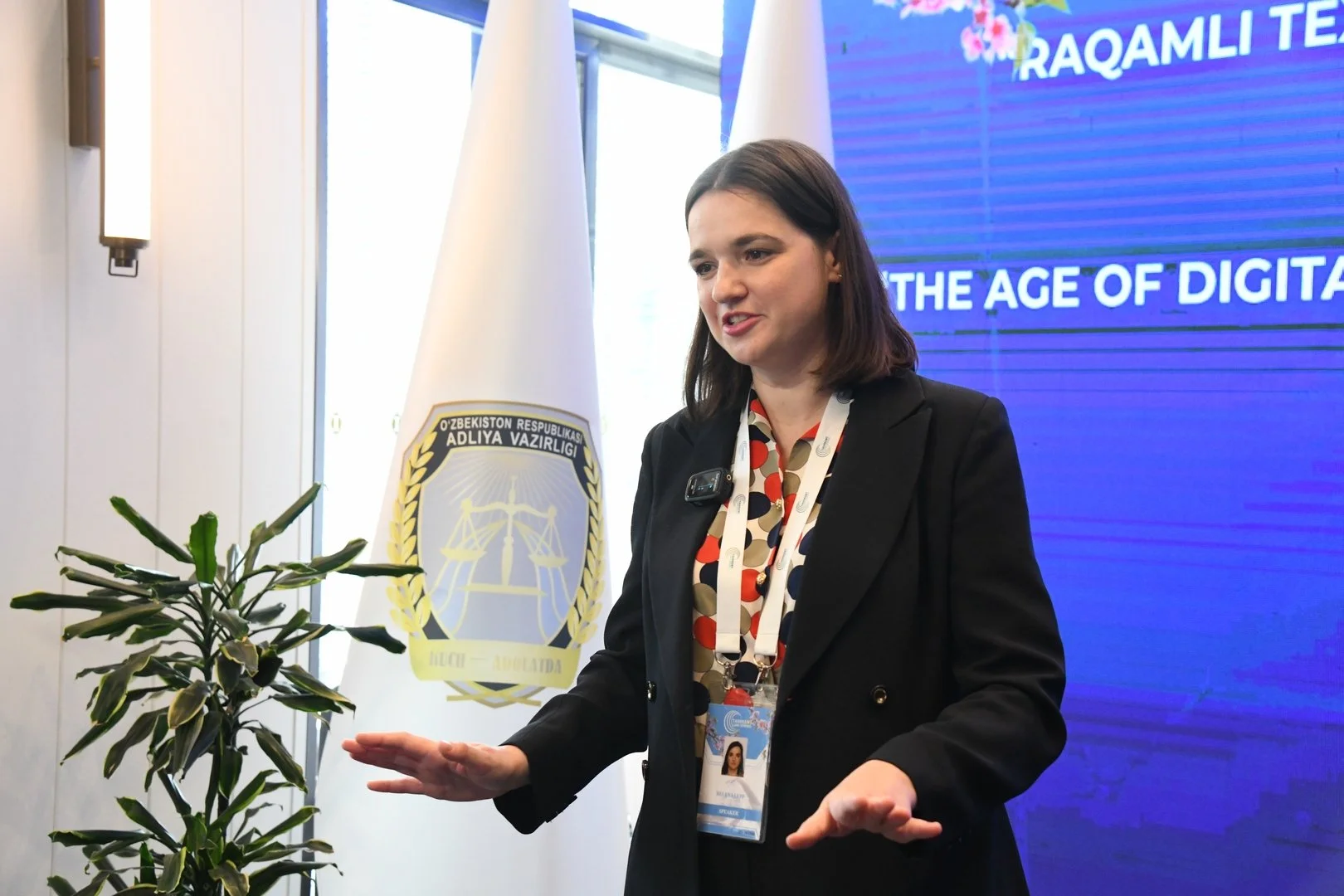In one whirlwind week in May 2025, the Digital Nation team found itself in three different cities and four events, yet immersed in one global conversation on how to govern a digital world.
Where We Were and Why It Mattered
May took us from Tallinn to Washington to Tashkent to back again - all in pursuit of the same mission: helping public institutions lead real digital transformation beyond the adoption of new technology. Each event was a snapshot of the future we are helping shape, which is toward bold leadership, grounded strategies, and people-first digital services.
Africa Business Forum 2025 in Tallinn
Too often, digital transformation is treated like a tech procurement project. But as we emphasised at the Africa Business Forum, it's 20% technology - and 80% transformation. And that transformation depends on leadership.
On a panel exploring how digital governance is accelerating business across Africa, our Director of Service Transformation Helena Lepp shared lessons from Estonia’s journey, and how we've helped governments across Africa adapt those insights to their own realities. From interoperability rollouts to service transformation, one theme has kept resurfacing: transformation succeeds when leaders drive it. Vision, decisiveness, and relentless follow-through make the difference.
We didn’t speak from theory. We brought our practitioner experience from working with governments across four continents to build systems that scale, serve, and deliver.
e-Governance Conference 2025 in Tallinn
The theme said it all: From Bytes to Benefits. But as we emphasised on stage and in conversations throughout the week, bytes don’t deliver benefits - leaders do.
At this year’s e-Governance Conference, we engaged directly with peers and partners from countries across the Caribbean as well as Kenya, Mauritius, Namibia, North Macedonia and the U.S. The takeaway that emerged across all settings is that digital transformation succeeds when it’s grounded in leadership, strategy, and execution.
On the Partner Stage our Director of Interoperability Maksim Ovtsinnikov distilled four essential lessons from our global experience:
Leadership + DPI is the real transformation engine
Technology alone won’t cut it. Without leadership at the highest levels - such as ministers, presidents, and agency heads - ambition stalls. The most successful governments treat digital as a strategic national asset, not an IT upgrade.Strategy must be actionable
We shared what defines an effective digital strategy. Principles like citizen-centric design, integration with national development goals, and a roadmap with clear, measurable outcomes.Copy-adapt, not copy-paste
Success lies in translating global best practices into local realities. Regional collaboration can support this adaptation, but local ownership is non-negotiable.AI is an enabler, not the endgame
AI’s value lies in aligning its utilisation with national priorities and solving real problems. The question isn’t whether to adopt AI, it’s how to use it to advance concrete goals.
Across both structured sessions and side discussions, we stayed focused on what truly matters, which is implementation, not just intentions.
This was also made clear by some of the key voices on the Strategic Stage such as Minister Stefan Andonovski from North Macedonia who posited that “It’s not just about saying “digital transformation” but actually doing it. It is about giving dignity to regular people on the ground. From mothers in rural areas that don’t have to take a sick day to do business with the tax office to people who do business in other towns where registration and filing of reports can be done faster. Governments must do more for citizens.”
GovTech Global Forum 2025 in Washington
In the heart of global policymaking, our Managing Partner Siim Sikkut joined the world’s leading voices to tackle one of the decade’s defining questions: how do governments lead responsibly in the age of AI?
Joining a panel of global experts, Siim shared three essential enablers for public sector AI adoption, principles shaped by Estonia’s experience and refined through our work with governments worldwide:
People before papers. Strategy can’t succeed without ownership. Before crafting frameworks, appoint the leaders responsible for delivering AI and data governance daily. Clear roles create momentum.
Build for change. In a rapidly evolving landscape, rigidity is a risk. Institutions must embed adaptability, making it possible to pivot, update, and scale without starting from scratch.
Invest in the invisible. Foundational data infrastructure and everyday tools don’t make headlines, but they make delivery possible. It’s the quiet systems behind the scenes that determine success.
It was also a milestone moment for Digital Nation as our first engagement as a World Bank GovTech Global Partner. We're proud and excited to join a global network committed to advancing impactful, inclusive, and scalable solutions through shared knowledge and collaboration.
Tashkent Law Spring
Trust in government isn’t built through policies and bold promises, it’s built through experience and results. And the vehicles for this are government services. That’s exactly what our Director of Digital Service Transformation Helena Lepp highlighted in Tashkent during the session on Digital Public Administration and Public Services Transformation.
The focus of her presentation was on the design of public services that are proactive by design. When services are delivered automatically, at the right time and tailored to real-life situations, governments demonstrate that they understand and respect their citizens.
But achieving this requires more than technical upgrades. It demands a full reorientation, from government-centric thinking to truly human-centric design. From reactive service models to anticipatory delivery.
Helena laid out the four pillars of meaningful proactivity:
Accessible - Services delivered without needing users to apply, overcoming digital skill or connectivity gaps.
Usable - Simplified journeys that eliminate the need for searching, guessing, or navigating bureaucratic hurdles.
Personalised - Responses based on real needs, at the right moment, for the right individual.
Trustworthy - Systems that reduce missed benefits and obligations, earning confidence through fairness and reliability.
Critically, she also stressed the institutional prerequisites: robust data protection, transparency in how services are triggered, and respectful treatment of personal agency, especially in predictive or sensitive areas.
Our take on what it all means
At every event, in every exchange, a clear pattern of understanding emerged in that digital transformation is driven by leadership that delivers. What we saw in May underscored the need for three things:
Leaders who own the transformation journey and focus on execution beyond promises enshrined in lengthy documents
Actionable strategies that are rooted in local context and translate into immediate action, not just intent
Services that are built around people rather than institutions and government processes.
These are the levers of real, lasting change. And that’s where Digital Nation is mainly focused, helping governments lead with clarity, act with purpose, and implement systems that serve, earn trust, and endure.






